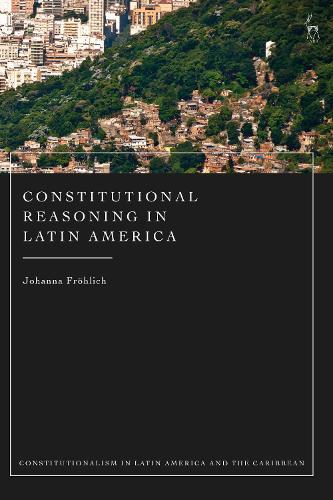
Constitutional Reasoning in Latin America
(Hardback)
Publishing Details
Constitutional Reasoning in Latin America
By (Author) Johanna Frhlich
Bloomsbury Publishing PLC
Hart Publishing
5th September 2024
United Kingdom
Classifications
Professional and Scholarly
Non Fiction
Comparative law
342.8
Physical Properties
Hardback
536
Width 164mm, Height 240mm, Spine 36mm
960g
Description
This book examines the jurisprudence of 15 constitutional courts and supreme courts, including the Caribbean Commonwealth and the Inter-American Court of Human Rights. By looking at the reason-giving practice by courts, the volume considers how Latin American courts justify their decisions, which is the precondition for constructive criticism and improvement. Based on original data and a region-specific methodology, the book provides a systematic analysis utilising more than 600 leading cases. It shows which interpretive methods and concepts are most favoured by Latin American courts, and which courts were the most and the least prolific in their reasoning activities. The volume traces the features of judicial dialogue on a regional and sub-regional level and enables the evaluation and comparison of each countrys reasoning culture in different epochs. The collection includes diverse graphs to visualise the changes and tendencies of the reasoning practices throughout time in the region, based on information gathered from the dataset. Latin American courts have gone through remarkable reforms after a series of constitutional changes adopted in light of the transformative constitutional trends that swept through the region in the late 1980s. The book illuminates how these courts have actually been reaching their decisions and facilitates future successful litigation strategies for both national constitutional courts and the Inter-American Court for Human Rights. This project has been possible due to the collaboration and funding provided by the Rule of Law Programme for Latin America of the Konrad Adenauer Foundation and the Law School of the University of San Francisco de Quito.
Author Bio
Johanna Frhlich is Assistant Research Professor of Law at the Faculty of Law, Pontifical Catholic University of Chile.
